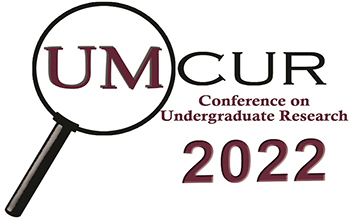Project Type
Presentation
Faculty Mentor’s Full Name
Dr. Eva-Maria Maggi
Faculty Mentor’s Department
Political Science
Abstract / Artist's Statement
The 1964 Wilderness Act was a landmark legislation created under unique circumstances, but its legacy no longer pertains solely to the culture it was created in. This paper seeks to address the present impacts of the themes and emotionality of language used in the Wilderness Act, specifically the term “untrammeled,” on modern Wilderness recreation policies and individual opinions. To fully understand the impacts of describing wilderness as an area that is “untrammeled,” this research is split into two parts. In the first part, I review and analyze outstanding literature regarding the variables that led to the creation of and specific language used in the Wilderness Act. In the second part of the project, I analyze current Wilderness recreation policies, including qualitative data analysis through a series of interviews with Montana Wilderness stakeholders, to explore how the concept of “untrammeled” continues to affect Wilderness recreation policy formation and individuals’ opinions. This research aims at connecting the prevailing ideologies of the political actors who influenced the creation of the Wilderness Act to current Wilderness recreation management, ultimately helping facilitate future Wilderness recreation policies that are inclusive, equitable, and maintain the essence of the 1964 Wilderness Act.
Category
Humanities
Wilderness Ideology: Understanding the 1964 Wilderness Act and Wilderness Recreation
UC 327
The 1964 Wilderness Act was a landmark legislation created under unique circumstances, but its legacy no longer pertains solely to the culture it was created in. This paper seeks to address the present impacts of the themes and emotionality of language used in the Wilderness Act, specifically the term “untrammeled,” on modern Wilderness recreation policies and individual opinions. To fully understand the impacts of describing wilderness as an area that is “untrammeled,” this research is split into two parts. In the first part, I review and analyze outstanding literature regarding the variables that led to the creation of and specific language used in the Wilderness Act. In the second part of the project, I analyze current Wilderness recreation policies, including qualitative data analysis through a series of interviews with Montana Wilderness stakeholders, to explore how the concept of “untrammeled” continues to affect Wilderness recreation policy formation and individuals’ opinions. This research aims at connecting the prevailing ideologies of the political actors who influenced the creation of the Wilderness Act to current Wilderness recreation management, ultimately helping facilitate future Wilderness recreation policies that are inclusive, equitable, and maintain the essence of the 1964 Wilderness Act.
